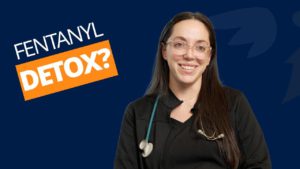Rebuilding Your Life After Rehab: Where to Start
Rebuilding Your Life After Rehab: Where to Start Completing a rehabilitation program is a huge milestone—an achievement worth celebrating. But once you’ve completed rehab, you

October 22, 2019
When we were active in the disease of our addiction, many of us took prescription medications, mixing them with the alcohol and/or drugs we were regularly consuming. Some of us used these prescribed medications in extremely irresponsible and dangerous ways. We took more than safe dosages, and sometimes sold and traded our meds for other drugs or money. This risky behavior eventually landed some of us in jail and others of us onto hospital beds.
As we began living lives in recovery, we realized that we could no longer consume alcohol and take prescription medications recreationally. When we did, we reopened the floodgates of our disease and ended up in active addiction/alcoholism once more. In recovery, we discovered that we needed to be careful and thoughtful about what substances we put into our bodies. We didn’t become “anti-medication” and did not preach about the dangers of taking doctor-prescribed medication. Instead, we share with one another our experiences and try to help less experienced members of our recovery fellowship learn from our mistakes.
For some of us, using opioid painkillers as prescribed by a medical professional is something about which we are cautious and thoughtful.
Prescription opioid addiction is well understood to be a deep-seated health problem in the United States. There is quite a bit of news focused on opioids, including opioid drug manufacturers, government lawsuits, and the countless social and economic problems that stem from widespread opioid addiction.
Some of us in recovery might assume that, because we didn’t use opioids when we drank and/or used, we are therefore less likely to be at risk for opioid addiction in recovery. If we are seriously injured and require pain medication, we can easily assume that since the medication is doctor-prescribed, we have nothing to worry about when we take it.
In such circumstances, we in recovery need to be especially careful. Whether or not we were previously addicted to a drug in the opioid family, all of us in recovery need to think long and hard before we start taking a prescription for an opioid painkiller. Some of us have witnessed friends in recovery—some with many years clean and sober—relapse back into alcoholism/addiction as a direct result of taking doctor-prescribed painkillers. If it becomes medically necessary for us to take these drugs, we can minimize our chances of reactivating our addiction/alcoholism by adhering to some helpful guidelines.
The first and most vital step you can take before receiving a painkiller prescription is informing your physician that you are an addict and/or alcoholic in recovery. Armed with this knowledge, your attending physician can consider this information to more safely plan your pain management. Keeping such details obscured from your doctor has the very real potential of steering you from recovery to relapse. For many of us, relapses are utterly catastrophic. Some of us never again had the chance to get back into recovery.
As is quite obvious to anyone, there is no one on the planet who is immune to accidental injury. Whether a misstep on the stairs results in a broken ankle or our ribs are cracked during a friendly wrestling match, injuries to our bodies are an absolute inevitability at some point in our lives.
Some of us have experienced surgeries that left us in a considerable amount of ongoing pain. We needed painkillers to be able to sleep and function in our daily lives. What helped preserve our recovery was telling people close to us that we were prescribed such medication and letting them know the quantity and frequency with which we planned to take it. In this way, we kept ourselves honest, creating a little safety net just in case taking the medication caused our recovery to weaken. We also made sure to tell our sponsors, reporting to them how often and how much of the painkiller prescription we were using. It might have felt strange, asking others to help us monitor our medication use, but in the end, we were grateful that we kept others informed. We knew that without our recovery, whatever injury we were healing from would be the least of our worries.
For people who haven’t done much praying or meditating, the idea of using these actions as tools to help us get through crises and stay on track may not be familiar. Yet in our 12-Step program, the 11th Step suggests that “We sought through prayer and meditation to improve our conscious contact with God as we understood Him, praying only for knowledge of His will for us and the power to carry that out.” Asking our Higher Power for help in making the best decisions possible regarding prescribed medication has helped many of us make choices that benefited our recovery.
In recovery, we have learned that being open and honest with those who care for us is the best way to ensure that our recovery stays intact. We have learned that we never have to drink or use again—and we never have to be alone again—as long as we keep our recovery program in the front and center of our lives.
If you or someone you know is suffering from alcoholism and/or addiction, please call the Summer House Detox Center now at 800-719-1090. Our addiction specialists are waiting to tell you about how you or your loved one can begin a new, healthy, and exciting life in recovery. You can also visit us at 13550 Memorial Highway Miami, FL 33161. We are open 24 hours a day, 7 days a week.
Rebuilding Your Life After Rehab: Where to Start Completing a rehabilitation program is a huge milestone—an achievement worth celebrating. But once you’ve completed rehab, you

From Detox to Recovery: The Next Steps After Completing a Detox Program Detox is the first and most critical step in overcoming addiction, but it’s

Are you looking for a safe and compassionate drug detox center in Kendale Lakes, Florida? If so, look no further than Summer House Detox Center.
For immediate assistance, please call our Admissions Specialists at 800-719-1090.
Speak With A Qualified Addiction Specialist 24/7